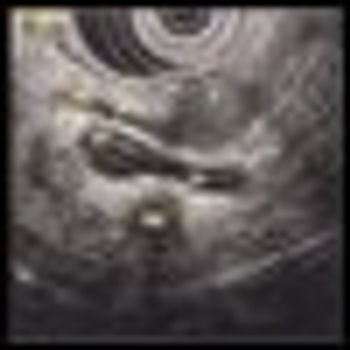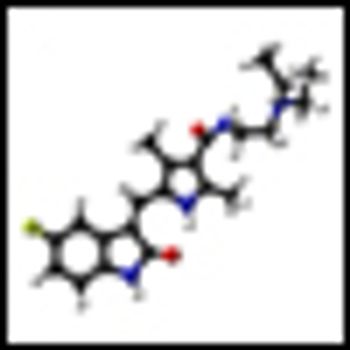
Schrader and colleagues provide four compelling examples of the power of genetic testing to impact medical management for probands and their family members.

Your AI-Trained Oncology Knowledge Connection!


Schrader and colleagues provide four compelling examples of the power of genetic testing to impact medical management for probands and their family members.

In this article, we use a case-based approach to focus on the hereditary aspects of the most common GI cancers, including pancreatic, gastric, and colon cancer.

A combined dual inhibition of vascular endothelial growth factor (VEGF) and c-MET is showing promise in preventing tumor invasion and metastasis. The data thus far are in a laboratory model of pancreatic neuroendocrine cancer.

Researchers in Sweden who analyzed several prospective studies found an increased risk of pancreatic cancer associated with processed meat consumption. They also found that eating red meat is linked to pancreatic cancer among men.

Inherited mutations in the ataxia telangiectasia mutated (ATM) gene increase the odds of developing pancreatic cancer according to a new study. While there is predisposition for pancreatic cancer with up to 10% of cases occurring among families with a history of the disease, the genetic basis for this had not been previously discovered.

The review of surgical management of neuroendocrine tumors (NETs) of the gastrointestinal tract, authored by Huang, Poultsides, and Norton, is both comprehensive and accessible for readers of all backgrounds.

This article reviews the surgical management of gastrointestinal neuroendocrine tumors, including the preoperative control of hormonal symptoms, extent of resection required, postoperative outcomes, and differing management strategies as determined by whether the tumor has arisen sporadically or as part of a familial disorder, such as multiple endocrine neoplasia type 1.

Tumors of neuroendocrine origin arising from the pancreas, luminal gastrointestinal tract, and other tissues differ greatly in their malignant potential.

In this article, we review the data surrounding the use of chemotherapy (CT) and chemoradiotherapy (CRT) in patients with resectable pancreatic cancer.

Surgical resection remains the sole modality that has proven capable of "curing" pancreatic cancer.

Sunitinib (Sutent) has been approved as the first anti-VEGF (vascular endothelial growth factor) agent for neuroendocrine tumors (NET) in patients with unresectable locally advanced or metastatic disease.

This review highlights the current status of the research in targeting the insulin growth factor pathway with a specific focus on gastrointestinal cancers.

There are a number of important issues regarding neoadjuvant and adjuvant therapy for pancreatic cancer that must be considered as we design clinical trials in an effort to improve survival for this disease.

Dr Castellanos et al have provided a very comprehensive review of the multimodality therapy of localized pancreatic cancer, with an emphasis on adjuvant and neoadjuvant therapies.

Early trials of adjuvant therapy in pancreatic cancer had multiple limitations including small sample size, population heterogeneity, and inability to distinguish between components of combined modality treatment.

The case of recurrent pancreatic cancer presented in this issue of ONCOLOGY by Dr. Dasari and colleagues illustrates the significant challenges faced by both medical and surgical oncologists in the management of pancreatic adenocarcinoma. This case describes an all-too-common clinical scenario: A thorough preoperative assessment indicating resectable disease, but with the initial medical oncology assessment revealing overt metastatic disease. The development of distant metastases in the short interval between pre-operative and post-operative staging reflects the aggressive underlying biology associated with a subset of patients with this malignancy. New insight into the genetic evolution of pancreas adenocarcinoma from Yachida and colleagues suggests that the latent period between initial development of pancreas adenocarcinoma and development of metastases is measured in years, however detection of the diagnosis at an early stage remains an ongoing challenge for clinicians.[1]

In this issue of ONCOLOGY, the case and discussion provided by Dasari and colleagues highlight a significant problem for many patients with potentially resectable pancreatic cancer (PC)-the rapid emergence of preexisting metastatic disease. The authors describe the case of a 57-year-old woman with a resectable tumor after staging evaluation and management which included an endoscopic ultrasound (EUS), CT imaging, and endoscopic retrograde cholangiopancreatography (ERCP) with insertion of an endobiliary stent. Although the results from EUS are not detailed in the report, there were apparently no preoperative features to suggest more advanced disease, and she underwent surgery. Four weeks later, she presented with advanced disease manifested by an elevated CA 19-9, bilobar liver metastases, and possible local recurrence. This case illustrates some important considerations in the management of PC as we discuss here.

The University of Colorado Denver School of Medicine faculty hold weekly second opinion conferences focusing on cancer cases that represent most major cancer sites. Patients seen for second opinions are evaluated by an oncologic specialist. Their history, pathology, and radiographs are reviewed during the multidisciplinary conference, and then specific recommendations are made. These cases are usually challenging, and these conferences provide an outstanding educational opportunity for staff, fellows, and residents in training.The second opinion conferences include actual cases from genitourinary, lung, melanoma, breast, neurosurgery, gastrointestinal, and medical oncology. On an occasional basis, ONCOLOGY will publish the more interesting case discussions and the resultant recommendations. We would appreciate your feedback; please contact us at second.opinion@uchsc.edu.

The search for a magic bullet against cancer historically has glowed bright then dimmed, depending on the stage of discovery. Developments surrounding monoclonal antibodies and angiogenesis inhibitors have followed this cycle, as exuberance for their potential has bowed to the nuances that underlie the complex mechanisms on which they depend.

In a large study of resected pancreatic cancer, overall survival did not differ whether patients received gemcitabine or 5-FU/folinic acid.

A novel IGF-receptor inhibitor stabilized disease in a majority of pancreatic cancer patients, according to a report at the 2010 GI Cancers Symposium.

Screening is the key to protecting those at risk for pancreatic cancer, according to presenters at the 2010 Gastrointestinal Cancers Symposium.

Although still relatively uncommon in Western countries, esophageal cancer is fatal in the vast majority of cases. In the United States, an estimated 16,470 new cases will be diagnosed in the year 2009, and 14,530 deaths will result from the disease. This high percentage of deaths rivals that of pancreatic cancer and is more than four times that of rectal cancer.

Pancreatic cancer is the fifth leading cause of cancer death in the United States. In the year 2009, an estimated 42,470 new cases are expected to be diagnosed, and 35,240 deaths are expected to occur.

GenVec, Inc, announced that the US Food and Drug Administration (FDA) has granted orphan drug designation to TNFerade for the treatment of pancreatic cancer.